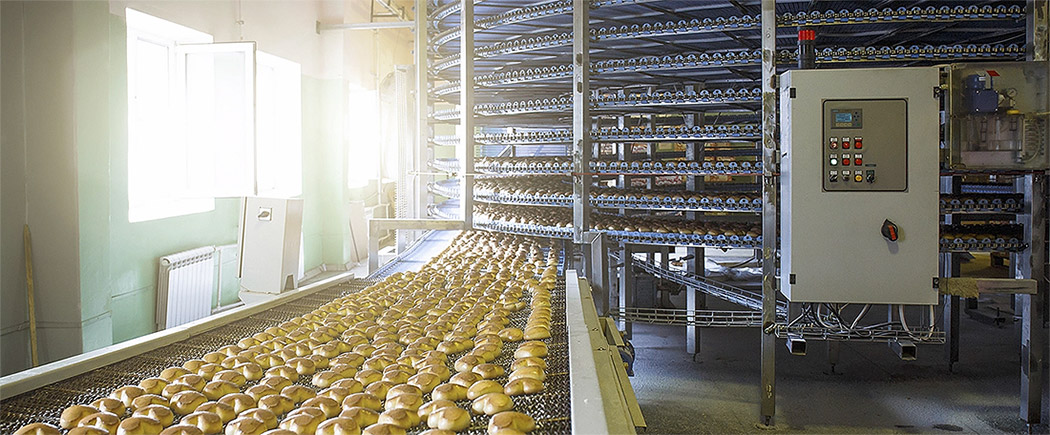Amidst the fast-paced nature of the industry, today’s food and beverage manufacturers are facing increased pressures and greater challenges to meet evolving consumer demands.
Consumers want more transparency in the manufacturing and distribution process, and it’s becoming increasingly important that the process be environmentally friendly, sustainable, and energy-conscious. Not to mention the ever-present expectations of economic demands to maximize quality while reducing cost.
So, what changes can manufacturers make to meet these consumer demands for waste minimization in the food industry? The principles of lean manufacturing will answer this question.
What is Lean Manufacturing?
Lean manufacturing is a principle that aims to maximize productivity while simultaneously minimizing waste or anything that doesn’t add value to a manufacturing operation.
There are many benefits of lean manufacturing to producers, including:
- Reduced lead times
- Reduced operating costs
- Improved product quality
What Are Some Lean Manufacturing Examples?
Lean manufacturing is an innovative way to keep your costs and wastes down while maximizing your food and beverage processing. Reducing your energy and using high-tech technology to increase your productivity will help you lower food and beverage waste.
Below are some waste minimization techniques in the food industry that will help your business run more efficiently and effectively.
1. Ditch Labor Waste
Waste occurs when the skills of the workforce are underutilized or misappropriated. Human talent is a highly valuable and often overlooked commodity.
At some bakery operations, for example, as much as 55 percent of labor hours are spent on preventive maintenance, and average maintenance of one hour every two weeks, or 26 hours of downtime (per drive, per year), can cost as much as $312,000 annually. Not to mention faulty equipment, part wear, and harsh conditions, which result in added maintenance costs.
A great first step in moving towards lean manufacturing is identifying the following:
- Planned losses in cleaning, preventative maintenance, or decreasing product demand
- Operational losses in changeovers, stoppages, or shortages
- Quality losses in scrap products or defective materials
2. Minimize Energy Waste
Reducing waste of time and resources and removing unnecessary processes can save the costs of energy and fuel use. This has an obvious environmental benefit, as does the use of more energy-efficient equipment, which can also offer cost savings.
With HVAC running 24/7 at most food and beverage operations, drains on time and energy can be significant. So, having the most efficient systems and parts in place can make all the difference.
For example, a common source of energy waste seen in the food industry comes from v-belt drives. A reliable lean manufacturing method is upgrading to a synchronous belt drive system that can eliminate belt slip, torque loss, bending loss, and friction to maximize energy savings.
3. Eliminate Product Waste
Another major way plant managers can cut waste is by employing strategies and equipment to prevent product loss and maximize production efficiencies. Inefficient lines, formulation changes, and maintenance can cause product losses in large-scale food manufacturing plants.
For example, in the dairy industry, a typical milk processing plant processing 500,000 gallons can lose 3 percent, or 15,000 gallons a day, during maintenance and cleanings. By employing lean manufacturing tools that require less maintenance and are designed to run much longer between cleanings, businesses can maximize efficiency and minimize product loss.
4. Minimize Waste with the Gates Powergrip™ GT4™
Did you know that up to $13,000 gets spent on monthly inspection and re-tensioning of v-belts per year in the food & beverage industry? The synchronous belts can also replace older v-belts and still present the same advantages.
Synchronous belt drives require no lubrication and no re-tensioning, lowering maintenance costs and safety risks associated with maintenance in high-heat environments.
The Gates Powergrip GT4 has the highest temperature capacity of a belt in its class. This feature alone aids in minimizing the potential waste that can be created as other belts fatigue over time. The Gates Powergrip belt has applications in food processing, forestry/agriculture, HVAC, packing/automation, and stationary machinery/machine tools.
By upgrading your v-belts to the Gates Powergrip GT4, you’ll reap the benefits of:
- Increased productivity due to less downtime
- Lowered cost of ownership
- Reduced carbon footprint
- Reduced day-to-day maintenance costs
- Reduced electrical costs
- Higher temperature tolerance
- Achieved objectives for sustainability
Following these lean manufacturing principles will help you keep your costs down and improve your output. Taking a holistic view of packaging and processing elements throughout the food and beverage manufacturing value chain and enacting changes where possible benefits businesses, the environment, and society.





